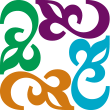The Dante Alighieri Society, through its Italian Language Schools for Foreigners of Rome, Milan, Florence, Bologna and Turin, organises Italian language and culture courses for Chinese students adhering to the “Marco Polo” and “Turandot programmes”.
The course offering provides:
10 months (1000 hours): 3 November 2020 – 31 August 2021 € 5,900*
11 months (1100 hours): 5 October 2020 – 31 August 2021 € 6,500*
Nel caso in cui persistessero ancora problemi legati al COVID-19, gli studenti potranno iniziarei corsi oltreché in presenza anche a distanza attraverso la piattaforma Zoom e all’arrivo in Italiasi potranno inserire nelle classi in presenza presso la scuola prescelta fra le 5 della Dante (Roma, Milano, Firenze, Bologna e Torino).
Upon arrival the students will be met by a Chinese mother tongue tutor for Welcoming and Orientation. The tutor will assist them with the procedures for the residence permit application, registration, and housing.
The Italian language course aims to prepare students for the certificate of proficiency in the Italian language PLIDA exam, level B1 or B2. The level varies depending on the number of requests received by the University or AFAM Institutes in which the students will subsequently enrol.
The courses have a maximum of 18 students per class and consist of 100 hours per month of lessons, simulations, practice, recreational and cultural activities, etc…
Lessons are held every day from Monday to Friday, in the morning or afternoon. Attendance is mandatory. At the beginning of the course students will have to sit for a placement test to assess their level. They will then be assigned to the appropriate group. Subsequently, at the end of each level, student progress will be assessed by means of an ability test based on the format of the PLIDA certification exam. If necessary, class groups may be rearranged further, to make learning more effective.
The didactic method utilised is the eclectic approach, aimed substantially at developing linguistic competencies (listening, reading, speaking/interaction skills, writing) and understanding the functional mechanisms of the language structure, vocabulary, language functions and cultural patterns. Activities carried out in class also include role-playing and simulation of real-life situations with authentic materials. The course aims to offer students the necessary language and communication skills to handle situations and topics that arise in a daily context when living in Italy, thus instruction also takes the shape of activities aimed at the development of socio-pragmatic skills. Grammar is explained with a preliminary introduction to the language structures and is further developed at a later stage through explicit grammatical explanations and the systematisation of language content.
In addition to communicative language teaching, the eclectic approach draws upon a combination of methods including game-based learning, varied methods of the Affective-humanistic approach (such as, for example, Suggestopedia, Total Physical Response), the Cooperative Learning approach and, at times, the Structured learning approach.
Part of the course is dedicated to preparing for the PLIDA certification exam which, besides acquainting students with the structure, tasks and methods of the exam, also helps develop linguistic abilities through essays and texts which are often more complex than those found in language learning textbooks.
During the final part of the course, the educational programme will be dedicated to the study of sectoral language with the objective of developing lexical skills aimed at various disciplines related to the education pathway of students. Furthermore, also during this phase, emphasis is placed on the integration of language skills through tasks such as note-taking, orally expressing linguistic content of more abstract nature, summarising etc., with a view to providing students with the skills and knowledge they need to meet the study effort required in the various academic contexts they have chosen.
Students will be involved also in activities like:
- Group project work activities taking place outside the classroom and entailing preparation of a final presentation by the students (with the use of slides, video, leaflet or other);
- Educational trips to visit monuments and places of historical and artistic interest;
- Meetings, lectures, and lessons aimed at preparing students for admission (or facilitating their participation) to Academies, Conservatories and Italian Universities:
- The Italian cinema: an Italian film is shown once a week and a discussion about the film is held afterwards with the teacher;
- The Library service, where present in Dante Alighieri Society’s Italian Language Schools, provides free of charge: advice in selecting books available, activities to improve pronunciation or newspaper reading to acquire an appreciation of the most important contemporary issues in Italy.
To make tuition fee payment use the bank details below:
SOCIETÀ DANTE ALIGHIERI
Piazza di Firenze, 27 – 00186 Roma – Italia
Cod. Fiscale 80101070581
IBAN: IT28 F 05034 03221 000000000536
BIC SWIFT: BAPPIT21506
BANCO BPM – Agenzia 17 – Roma – Italia
The bank fee must be paid by the student. Please specify on the reason of the payment family name and given name of the student who enrols.
*The price does not include the € 60 registration fee (which includes the Membership Card) and is payable directly to the Secretarial Office at the beginning of the course.




